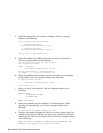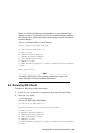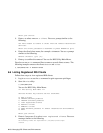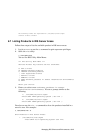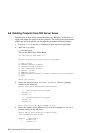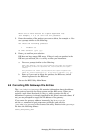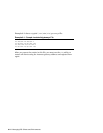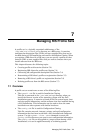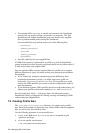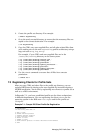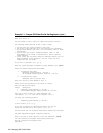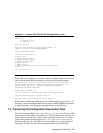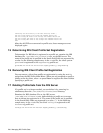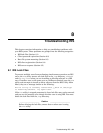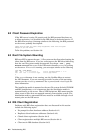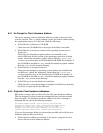• User-supplied files are a way to extend and customize the installation
process, and can contain scripts, executables, or programs. The Full
Installation and Update Installation processes execute user-supplied
files at predetermined points during the installation.
User-installed files may include some or all of the following files:
–
preinstall
– update_preinstall
– postload
– update_postload
– postreboot
• Any files called by the user-supplied files.
If a RIS client system is registered for a profile set, the Full Installation
process searches the client system’s registered profile set and takes action if
it finds any of these user-supplied files.
You can organize CDFs and user-supplied files into profile sets to support
different functions or types of systems within your processing environment.
For example:
• If you install and configure engineering systems differently from
accounting department systems, you might create two profile set
directories: engineering and accounting. Those profile sets would
contain the CDFs and files you create to suit the configuration needs of
both departments.
• If you maintain separate CDFs and files for servers and workstations, you
might create profile set directories named server and workstation.
See the Installation Guide — Advanced Topics for information about
Installation Cloning, Configuration Cloning, creating and modifying CDFs,
and creating user-supplied files.
7.2 Creating Profile Sets
The /var/adm/ris/clients/sets directory can contain many profile
sets. Each of the profile set directories may contain CDFs and user-supplied
files, as well as any files called by them.
Use the following procedure to create profile sets:
1. Log in to the RIS server as root or use the su command to gain
superuser privileges.
2. Go to the profile sets directory:
# cd /var/adm/ris/clients/sets
7–2 Managing RIS Profile Sets



